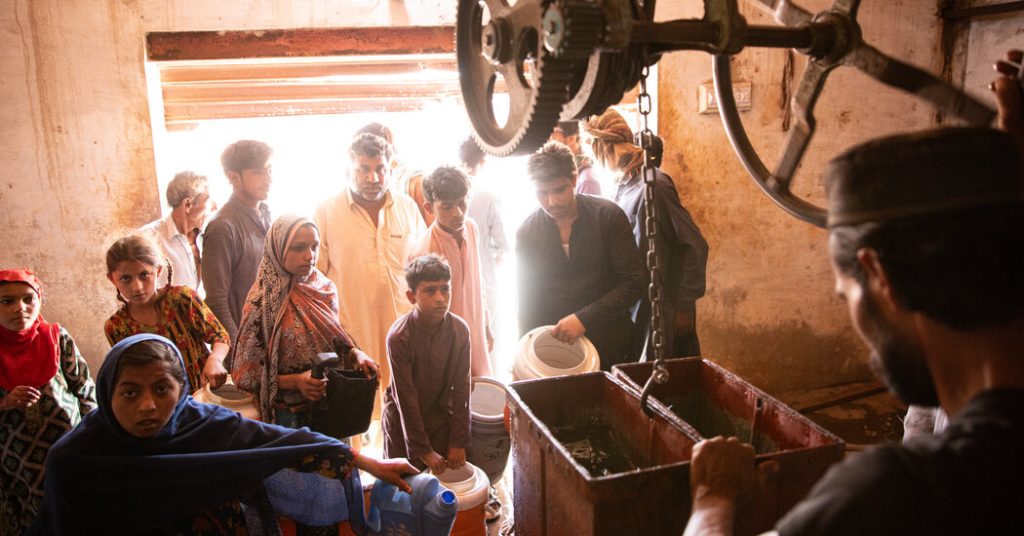South Asia is currently experiencing a brutal heatwave, with temperatures soaring as high as 126 degrees Fahrenheit in some areas. In Jacobabad, Pakistan, Abideen Khan and his son are among those struggling to make a living under these extreme conditions. The scorching heat has forced them to halve their earnings as they can no longer work past 1 p.m. Such conditions are exacerbated by blackouts lasting 12 to 20 hours a day and a lack of basic necessities like water and proper housing, making life incredibly challenging for the one million residents of the district.
The impact of the heatwave is being felt across the region, with reports of heat-related deaths in both India and Pakistan. The extreme temperatures have even affected the ongoing national election in India, with several poll workers succumbing to heatstroke. The intense heat has also made it difficult for those working in crucial sectors like agriculture, where laborers like Sahiba must toil under the relentless sun to earn a living. Many become temporary climate refugees during the summer months, seeking respite in cooler cities like Quetta and Karachi, though the costs of such temporary migrations are high.
For individuals like Jansher Khoso, the struggle to survive the harsh climate of Jacobabad is a year-round challenge. He sends his family to Quetta during the hottest months, while he works long hours in Karachi to afford this temporary migration. The plight of the city is further compounded by past tragedies, such as the devastating floods in 2022 that claimed thousands of lives. Despite its harsh climate, Jacobabad was a site General Jacob managing the heatwave, with efforts such as an irrigation system that supplied fresh water to residents. Today, these canals lie dry and littered with garbage, a stark reminder of the ongoing challenges faced by the city’s inhabitants.
As the heatwave continues to grip South Asia, community activists and organizations like the Community Development Foundation are working to provide assistance to the most vulnerable populations. However, the lack of resources and infrastructure in these areas makes it difficult for residents to cope with the extreme conditions. Residents like garment worker Jansher Khoso are forced to make difficult choices to protect their families from the harsh climate, working long hours in far-off cities to afford temporary migrations to cooler regions. The combined effects of climate change, economic hardship, and political instability have created a dire situation for those living in Jacobabad and other vulnerable areas in the region.
The government in Pakistan has been called upon to take action to address the challenges posed by extreme heatwaves and climate change. Efforts to improve infrastructure, provide basic necessities like water and electricity, and support vulnerable populations are necessary to mitigate the impact of rising temperatures and ensure the safety and well-being of residents. In the face of such adversity, community organizations and individuals are working tirelessly to help those most affected by the heatwave, offering support and assistance to ensure that they can survive and thrive despite the challenging conditions they face.








